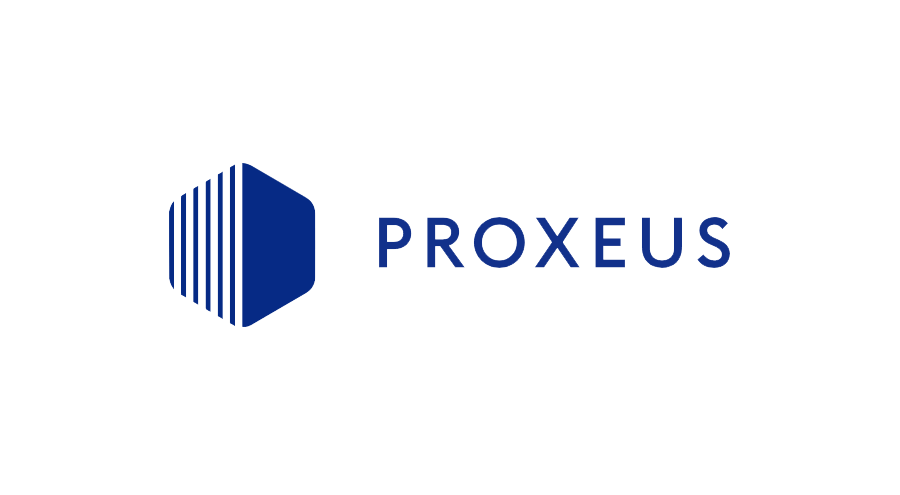Proxeus has released version two of its beta, adding a blockchain storage DApp that can effectively become a “digital safety deposit box.” With the Proxeus data storage DApp, users will have total control over their digital identity. By storing encrypted data in secure facilities off-chain, while putting advanced access controls on-chain using smart contracts, Proxeus has created a solution where people can create private/public registers – and become their own data providers.
Similar in concept to the hyperlink for the web, Proxeus’ data storage DApp offers the ability to embed a near-infinite level of depth in file-linking, presenting the entirety – and granularity – of a user’s digital identity at the same time.
“We are introducing the world’s most advanced file-sharing and management platform. This is the first truly decentralized application in which any user can retain the total privacy of their data.”
The application does away with traditional data storage subscriptions and contracts, as a pay-as-you-go-storage solution broken down to the individual file and paid for in XES, Proxeus’ token. It allows any storage provider to be able to connect to Proxeus via blockchain and offer storage services to any user, with the current standard monthly subscription contract completely replaced by the smart contract managing access to the storage.
Users can choose their storage wherever and however they want. With payment, storage, access and sharing all controlled by Proxeus ecosystem, there is the potential for unlimited storage, without any contract risk.
“Our data storage DApp will make the collaborative economy safer. In the near future, an individual will have access to their tokenized assets at any time using a Proxeus-based portfolio. You could carry a house in your pocket if you wanted to.”
With the user “holding the key” to every file, the Proxeus storage DApp will let users decide who has access to their data, and when it is to be removed – all backed by the immutability of the blockchain. The service has the potential to make a significant impact on the secure and controlled sharing and selling of data and IP, as it can eliminate intermediaries, international copy between clouds and data-mining.
The storage DApp adds a level of validation in that every time a Proxeus-issued document is countersigned, not only does the document become more trustworthy, but also the issuer’s crypto-identity gains in trust. The record of a user’s identity adds gravitas as time goes by, as the documents are immutable and can be verified.
“With its data storage module, Proxeus has essentially created a ‘circle of trust’ for KYC.”
By using the system of splitting access rights (on-chain) from the actual files (off-chain), and being able to give conditional access to documents, new business-cases become possible. Users can provide access to documents based on conditions, they can create time-sensitive documents and they can tackle the entire range of GDPR requirements.
The storage DApp is one of two existing modules for Proxeus, which has been dubbed as the “Wordpress for blockchain.” Its first module is a drag-and-drop blockchain workflow engine and document generator, which the company hopes will accelerate enterprise adoption of blockchain, by making the transition to blockchain-based workflows easier for the average organization.
With the Proxeus workflow engine and document generator, users can easily document, register and generate certificates of ownership over tokenized assets. With the addition of the data storage DApp, assets can be transmitted without having to go through an exchange. Users can store documents with the secure storage provider of their choice, and share them or provide access to them through the same mechanism with which they were enabled.
Data storage can be tied into these custom-built workflows, which can generate follow-up documents or distribute of information. Proxeus-generated documents are machine-readable by design and can be picked up by a Proxeus workflow – making Proxeus a key stepping-stone for digitization.
This functionality greatly increases processing efficiency; for example, a purchase order created by a Proxeus workflow could automatically generate a confirmation or invoice based on the form data (i.e. address), enriched by internal data (i.e. price), generating an invoice which can be shared with the purchaser directly from the system.
In March 2018, Proxeus demonstrated the prototype of the data storage solution in partnership with the Swiss data storage facility MOUNT10. “It’s a very exciting proposition for us,” says CEO Thomas Liechti.
Prior to the beta release, Proxeus developed prototypes to legally incorporate businesses, register assets, and validate certificates on the blockchain. Along with testing the new data storage module, the beta allows users to create workflows and register documents on the testnet blockchain, and easily recreate Proxeus’ use cases, such as the University of Basel’s Center for Innovative Finance course certificates (originally built in 100 hours) or WWF Switzerland’s tax donation verification system (built in less than one day) in a matter of hours.
Test XES tokens will be provided to show how they are functioning within the Proxeus ecosystem and are used to pay for Proxeus’ services.
[embedyt]https://youtu.be/uXvNfEBbm_k[/embedyt]















